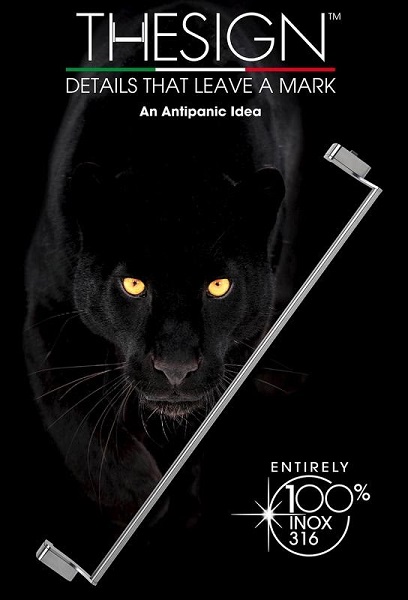European standard EN1125 requires that public buildings be equipped with anti-panic closure bars.
Antipanic wanted to offer an alternative in a market driven by a low-price dynamic.
It therefore decided to adopt a new philosophy, supplementing its existing product lines with a new high quality, aesthetic and innovative range of safety bars.
The aim was to transform a product that had to be installed for safety standard reasons into one that customers actually wanted to have.

Antipanic developed a range of bars that could be fixed on buildings’ emergency exits while also offering certain ornamental qualities. The company chose inox steel 316 because it combines solidity, resistance and aesthetics. For Antipanic, this excellence agenda is a way to maintain margins and re-affirm its role in the European market.
Starting in 2015, a new marketing campaign was launched to accompany the product’s initial manufacturing and commercialization. One goal was to get staff buy-in for this high value security bar. Another was to tie the product to a bigger story and convince future customers to come to Antipanic.
The change in culture culminated in the company feeling very proud both of its product and of the way it had gone out of its comfort zone to overcome the technical, commercial and logistical challenges it faced. The niche THESIGN product range increased total sales at Antipanic and brought in new customers. It also helped to get the company work on increasingly prestigious projects, supplying and installing bars at Florence’s Uffizi museum and in Doha underground stations. In addition to the commercial success, Antipanic’s initiative has reinforced the brand’s strength and visibility, allowing the company to differentiate itself in a market subject to regular price wars.